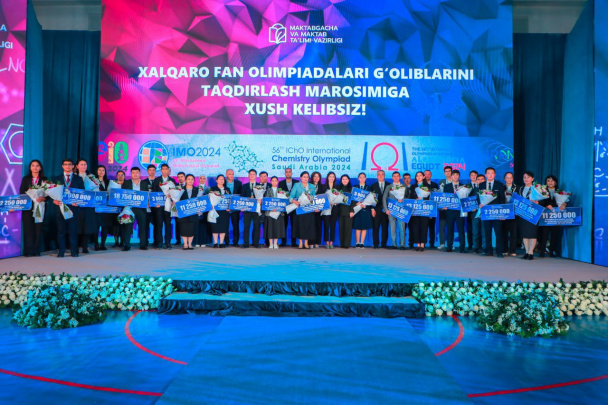Unlocking opportunities with IELTS: How British Council supports IELTS success in Uzbekistan
As the demand for English proficiency grows in Uzbekistan, the International English Language Testing System (IELTS) remains a key gateway for students, professionals, and immigrants aiming to unlock global opportunities. In an exclusive interview with Kun.uz, Andrey Maksakov, Head of Exams Business Development at the British Council, and Eldor Sattorov, an IELTS educator and founder of King’s Academy in Tashkent, shed light on what makes IELTS a trusted test, debunk common myths, and explore its evolving role in the country. They offer a clear picture of why IELTS matters and how the British Council supports test-takers in achieving their dreams – whether it’s studying at a top university, securing a job abroad, or immigrating with confidence.
A globally trusted standard
Andrey Maksakov emphasizes that IELTS stands out due to its rigorous academic foundation and unwavering commitment to fairness and security. “IELTS sets the standard of what a quality test should be,” he says, pointing to decades of research ensuring its reliability. Recognized by over 12,500 organizations worldwide – including universities, governments, and employers – IELTS aligns with the Common European Framework of Reference for Languages (CEFR), testing proficiency from B1 to C2 levels. This makes it ideal for academic, professional, or immigration purposes.
The test’s design process is meticulous, involving experts who craft questions free of cultural bias, reflecting real-life English usage. Maksakov explains, “We ensure the test matches the environment where people will use English – be it work, study, or daily life.”
With options for paper-based or computer-delivered formats, and academic or general training modules, IELTS offers flexibility to suit diverse needs. For those planning to take the test, the British Council provides a secure, well-structured experience that upholds these high standards.
Debunking myths with expert clarity
Eldor Sattorov tackles persistent myths that often confuse test-takers. One common misconception is that complex vocabulary guarantees a high score. “False,” he asserts. “Use language naturally – examiners spot memorized phrases instantly.” Similarly, accents don’t affect speaking scores as long as pronunciation is clear. “We all have accents,” Sattorov notes, “but intelligibility matters most.”
Other myths – like longer essays equating to better scores or pausing during speaking lowering your band – are also dispelled. “Quality trumps quantity,” he says, stressing the importance of meeting minimum word counts (150 for Task 1, 250 for Task 2) while focusing on structure and coherence.
Sattorov adds that guessing answers in the reading section is a smart strategy, as there’s no penalty for wrong answers, unlike leaving them blank. Preparation, not luck or location, determines success, he insists: “Lucky are those who are well-prepared.”
Computer-delivered IELTS
Andrey Maksakov noted a significant shift in Uzbekistan’s test-taking trends, driven by the computer-delivered IELTS option introduced by the British Council. Before 2019, less than 2% of tests were computer-based, but post-COVID, this figure has surged into the 20s. “The pandemic spurred acceptance of technology,” he said.
With daily test availability, results in one to two days, and digital certificates, this format offers unmatched convenience – especially for those on tight deadlines. If you’re considering IELTS, the British Council’s computer-based option could streamline your journey, giving you faster results to pursue your goals.
More band 9s: A sign of progress
The increasing number of test-takers achieving a perfect Band 9 in Uzbekistan has sparked curiosity. Maksakov attributes this to improved education access, government support for language learning, and a competitive teaching market where top scores are a badge of honor. “There are no barriers to achieving your potential,” he says, noting that while Band 6.5 or 7 suffices for most universities, the pursuit of 9 reflects personal ambition. Sattorov agrees, crediting digital resources like YouTube for boosting exposure to English, though he maintains the test’s difficulty remains consistent.
British Council’s support for success
The British Council enhances the test-taking experience with free resources like IELTS Ready Member, offering practice tests and lessons to all registrants, and IELTS Ready Premium, a robust tool with over 40 practice tests and AI-driven guidance – free for those booking computer-based tests. “It’s a great addition to your preparation,” Maksakov said, encouraging early registration to maximize its benefits.
Related News

22:19 / 26.05.2025
Over 455,000 students graduated from high school in Uzbekistan this year

16:44 / 24.05.2025
Gov’t increases cash prizes for international Olympiad winners and their teachers

12:13 / 24.05.2025
President Mirziyoyev congratulates graduating students, encourages them to strive for a better future

16:35 / 23.05.2025




